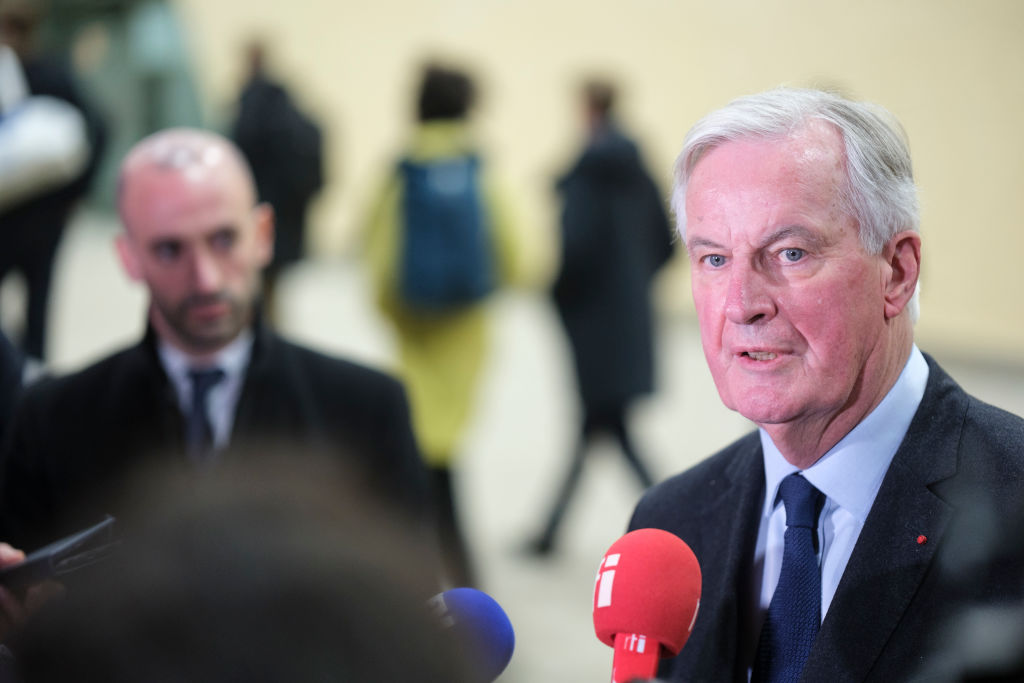France’s former interior minister Gérald Darmanin has called upon current PM, Michel Barnier, to find common ground with the National Rally (RN) party “and its 11 million voters”.
While the French Government is under increasing pressure to find a solution to fix its derailed budget and national debt, former Macronist leader Darmanin said the administration should look towards the hard-right for solutions.
Being forced to work either with the hard-left or the hard-right and struggling with the budget, the centrist government in Paris, which lacks a majority in the French parliament, could soon face a vote of no confidence.
Darmanin apparently seems to believe better answers can be found on the Right.
On X on November 27, he wrote: “In a few days, the deputies will have to make an extremely important decision.
“I hope, for the sake of my country, that they will not censure the government of Michel Barnier, which is doing everything possible in very difficult circumstances.”
He said that was “why the government must listen to requests for budget changes: a substantially modified budget is better than no budget at all”.
He added: “These requests for changes are legitimate: they correspond to the democratic wishes of millions of French citizens who expressed themselves in June [elections].
“For the good of France, I believe that a gesture of compromise is needed regarding the electricity tax and the non-increase of charges. A hand must be extended to parliamentarians who do not wish to censure the government a priori.
“This dialogue obviously includes also discussing with the RN deputies. Their 11 million voters, who are very often disappointed by the so-called government parties, cannot be disregarded, much less excluded from the democratic field. Everything must be done to avoid government censorship. It is the national interest that dictates it.”
On November 28, Economy Minister Antoine Armand stated on BFMTV that he was willing to make “concessions” on budgetary provisions, particularly regarding the energy tax, to avert the economic and financial pain France would face if it failed to pass a budget.
Dans quelques jours, les députés devront prendre une décision extrêmement importante.
J’espère, pour le bien de mon pays, qu’ils ne censureront pas le Gouvernement de Michel Barnier, qui fait tout son possible dans des circonstances très difficiles.
Dans les temps troublés que…
— Gérald DARMANIN (@GDarmanin) November 27, 2024
Barnier has warned of a “storm” if the budget is rejected and the government collapses, alluding to turmoil in the financial markets and a sharp rise in interest rates.
Polls have shown that a majority of French citizens want Barnier’s government to fall and RN leader Marine Le Pen had previously warned she was prepared to take action that could lead to the downfall of the administration.
She has three primary demands, namely the avoidance of any tax increases, particularly for the working classes, decisive action to curb immigration and the introduction of a proportional voting system, which she argued was a better reflection of what French people wanted.
International investors have seen the spread between French and German 10-year interest rates reaching the highest levels since the European sovereign debt crisis of 2012. https://t.co/AzNZCfotVT
— Brussels Signal (@brusselssignal) November 28, 2024
While debates have been raging on how to fix the budget, the left-wing opposition tabled a proposal to lower the pension age from 64 to 62 years. Earlier, RN had signalled it was open to support this but the vote was pushed back by a series of amendments.
In the Senate, three measures to bring in new revenues were approved on November 28, after a tax raise on electricity was voted away. The Senate agreed on higher taxes for bottled water, gas boilers and airline tickets.
France’s 10-year interest rate matched Greece’s for the first time, at 3.03 percent, despite Greece’s significantly bigger public debt, Bloomberg reported on November 27. Investors are concerned that a collapse of the French administration would postpone the needed work on the budget.
To this, the economy minister said on BFMTV/RMC tv channel on November 28 that “France [was] not Greece”.
“France has an economy, France has a situation of employment, activity, attractiveness, an economic and demographic power that is much greater,” he said.
COMMENT: France is the most politically influential and the second largest economic power in Europe and it has arrived at a point that could swiftly descend into substantial social and political disorder, writes @ConradMBlack. https://t.co/xwjznL51xP
— Brussels Signal (@brusselssignal) October 30, 2024





